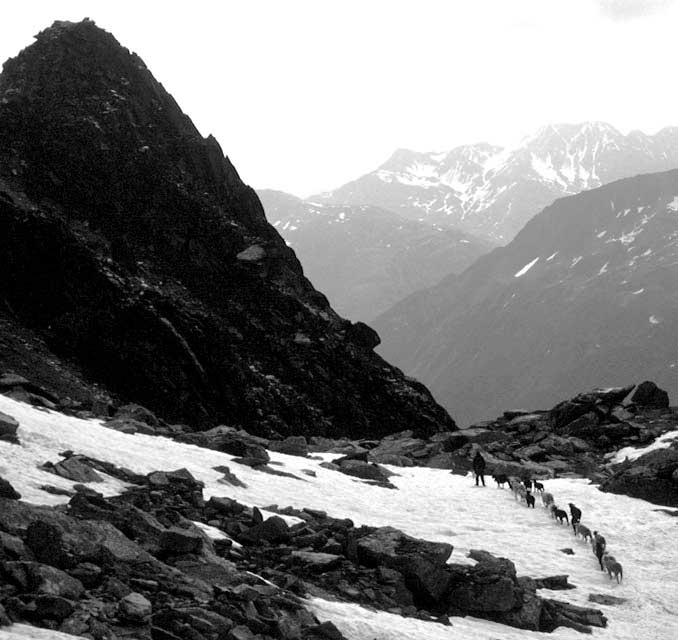XVI [ZWEITER TEIL]
Immer wieder von uns aufgerissen,
ist der Gott die Stelle, welche heilt.
Wir sind Scharfe, denn wir wollen wissen,
aber er ist heiter und verteilt.
Selbst die reine, die geweihte Spende
nimmt er anders nicht in seine Welt,
als indem er sich dem freien Ende
unbewegt entgegenstellt.
Nur der Tote trinkt
aus der hier von uns gehörten Quelle,
wenn der Gott ihm schweigend winkt, /
dem Toten.
Uns wird nur das Lärmen angeboten.
Und das Lamm erbittet seine Schelle
aus dem stilleren Instinkt.
|
XVI [SECOND
PART]
Torn away from us again and again
is the god of the place which heals.
We are sharp-edged, for we have to know,
but he is [un]divided and serene.
Even the pure, the consecrated gift
he declines to take into his world
for, unmoved, he stands contrary
to the unfettered conclusion.
Only the dead drink
from the spring heard by us here,
when the god silently waves to them, /
the dead.
For us, noise is all that is offered.
And the lamb, out of a more quiet
instinct, begs for its bell.
|


